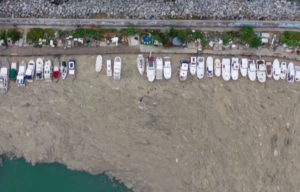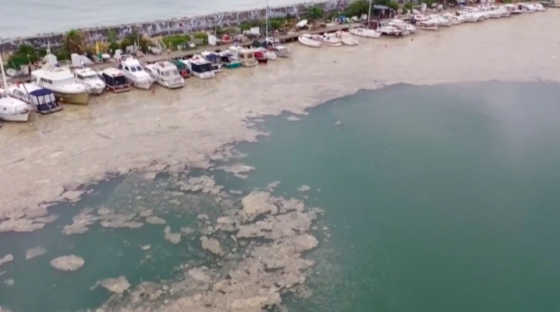
‘Sea snot’ disaster on Turkey’s shores

A huge mass of marine mucilage – a thick, slimy substance made up of compounds released by marine organisms – has bloomed in Turkey’s Marmara, as well as in the adjoining Black and Aegean Seas.
Turkish president Recep Tayyip Erdogan says untreated waste dumped into the Marmara Sea and climate change caused the sea snot bloom, according to Al Jazeera.
It is visible above the water as a slimy grey sheet along the shores of Istanbul and neighbouring provinces. Underwater videos showed suffocated coral covered with it.
Marine experts say human waste and industrial pollution is choking Turkey’s seas. They say the rise in water temperatures from climate change is contributing to the problem.
The naturally occurring mucilage was first documented in Turkey in 2007 when it was also seen in parts of the Aegean Sea near Greece.
This outbreak is the largest on record, blamed by experts on a combination of pollution and global warming, which speeds up the growth of algae responsible for the slimy sludge.
The snot results from a nutrient overload for the algae, which feast on warm weather.
Turkey’s recent outbreak is believed to be the biggest in history and is causing havoc for local communities, says the BBC.
The Turkish government has dispatched a 300-strong team to inspect potential sources of pollution.
Boats travelling through the Sea of Marmara have to navigate the grey sludge, and some fishermen are being prevented from working as it clogs up their motors and nets.
Divers have reported that large numbers of fish and other species are dying from suffocation.
Professor Bayram Ozturk of the Turkish Marine Research warns such problems would continue unless there was fresh investment to treat and purify waste water being pumped out of Istanbul.
“Due to the overgrowth of the mucilage, several species are under threat [including] oysters, mussels, sea stars,” Prof Ozturk told the BBC. “It’s a real catastrophe.”

